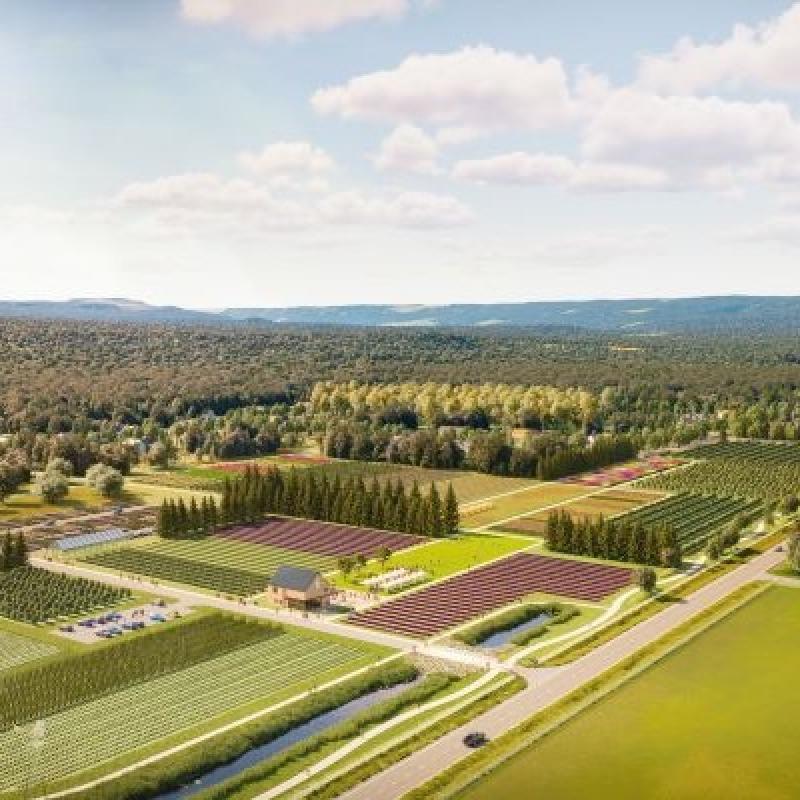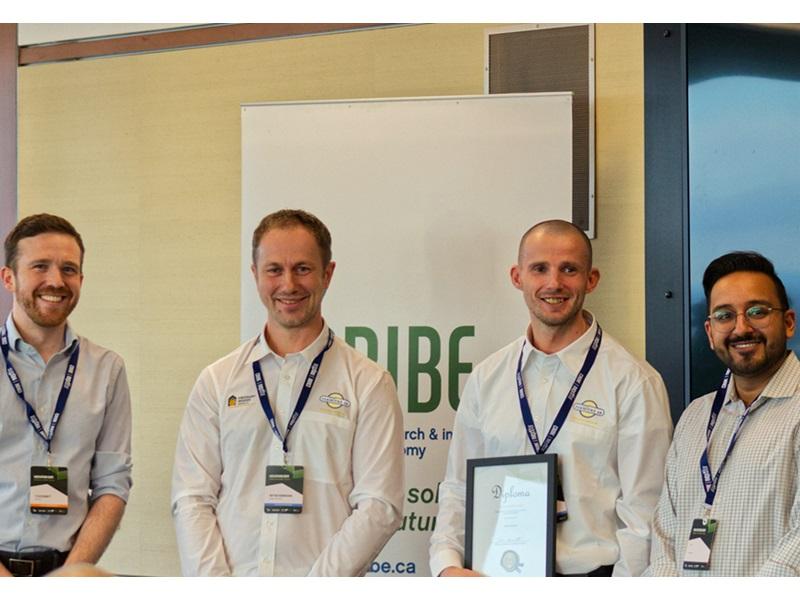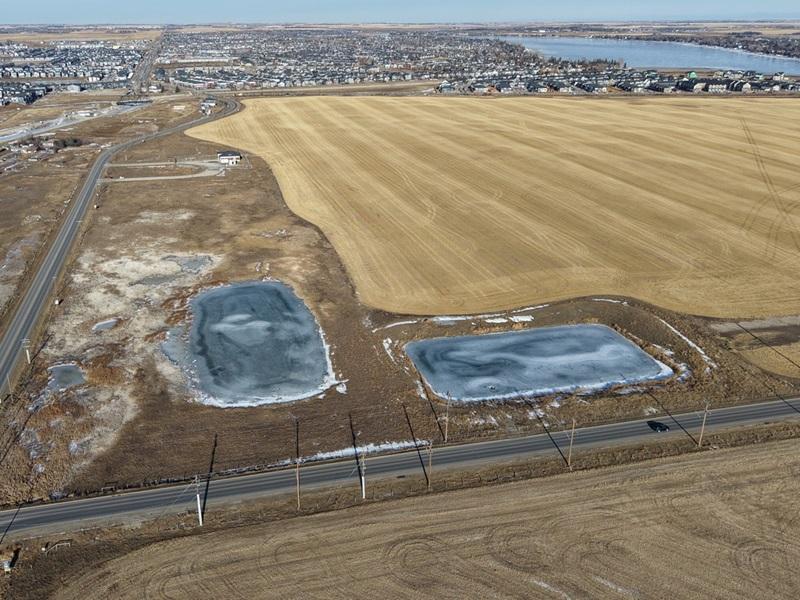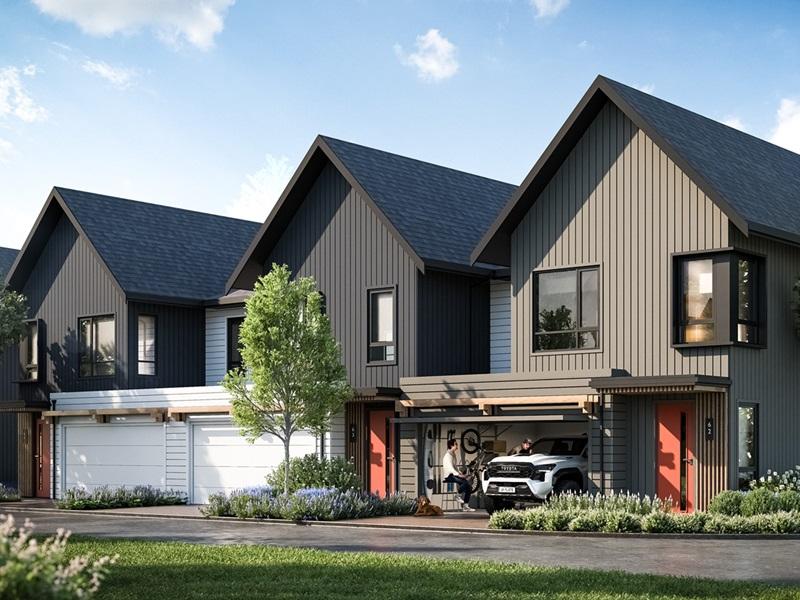
Castlepoint Numa is breaking a 10-year pause on greenfield development to build a residential farm condominium community in Thornbury, Ont. to satisfy rising demand for sustainable living.
Dubbed Thornbury Acres, it will be located on 50 acres of farmland where homeowners will have their own plots for regenerative agriculture. Residents will have a variety of options for their homesteads in a community that will operate with governance similar to a condo board.
“There has been a huge trend post-COVID of those looking for a closer relationship with agriculture and the food they produce as quality and costs are becoming more and more commonplace discussions in the home,” Harley Valentine, a partner at Castlepoint, said in an interview with RENX Homes.
“We think Thornbury Acres provides a blueprint for a new type of community that can leverage growth sites outside of the settlement boundary and create a new connection between families and farming.”
Castlepoint is a Toronto-headquartered family real estate office and developer with over seven million square feet of real estate in active development and over $10 billion in completed or in-pipeline projects.
An untypical development for Castlepoint
Thornbury Acres is a bit of a departure for Castlepoint, which typically develops high-rise towers in the Greater Toronto Area. But Castlepoint also has a values-based community focus, Valentine said, which is one reason why it pursued the community.
Also, it comes from a personal place for Valentine. The land was previously zoned for a golf course, but was acquired by Valentine and his partner in 2021 to build their family home with an agricultural lifestyle. To their chagrin, “we soon found out that 100 acres is a lot of land.”
Instead, Valentine brought in a planner to discuss the concept of a community centred around regenerative farming, and assembled a team of landscape architects, engineers and planners to put it into action.
It is Castlepoint’s first "horizontal" community, and a first-of-its-kind agricultural-based community in Ontario, he said.
The policy for the community was secured through a vacant land condominium, which registers the homesteads through a draft plan of condominium and ties them to the balance of agriculture and passive recreation space through a "parcel of tied land" structure. The legal mechanism will be like any condominium operator with a board, budget and fees to maintain the farm and passive recreation spaces.
Valentine prefers to call Thornbury Acres a residential farm condominium rather than an ‘agrihood’ or a residential farm cooperative.
About Thornbury Acres
Set along Grey County Road 2 and Road 40 in the Town of Blue Mountains, Thornbury Acres is expected to be 151.5 acres with 60 per cent for agriculture and recreation (91 acres), and 40 per cent for homesteads and roads (60.6 acres). Forty acres will be reserved for passive recreation, including 7.1 kilometres of trails.
The farm will be 50 acres and include a barn as the core of the community, featuring a commercial kitchen facility.
The 37 homesteads will range from 1.2 acres to 1.5 acres. Valentine expects homes to be marketed for $1.5 million to $5 million. No design architect has been retained yet.
Valentine anticipates a spectrum of sizes, from 1,200-square-foot bungalows to a 5,000-square-foot estate.
Located in the heart of the Blue Mountains, it will be near the Georgian Bay Club, ski clubs, provincial parks and beaches. Valentine said the town has been experiencing “unprecedented” growth since the COVID-19 pandemic driven by interest in all-seasons recreation, vacation property and people relocating to rural areas.
A waitlist of approximately 200 people is proof of strong interest, Valentine said. Prospective homestead owners come from non-agricultural professions like dentistry and law, with ages ranging from retirees to millennials.
“The bulk of the market interest that we’re getting is definitely from those looking to relocate out of urban settlements and expand their knowledge base and participation in agricultural production,” Valentine said.
Castlepoint is in the final phase of securing rezoning approvals and expects to kick off the project in Q1 2024. Over a phased building process, it will build the barn first and launch sales in Q2 or Q3 2024.
Regenerative farming
The interest in what Valentine calls human-scale regenerative farming, pushed by the COVID pandemic, drives Thornbury Acres. It will not need large-scale farm equipment, rather the gardening can be achieved with seeds and supplies from a hardware store, he said.
The crops – asparagus, leafy greens, butternut squash, berries, hay, nuts, for example – will aim to be pesticide-free.
“It’s really the antithesis to the commercial farm.”
Valentine expects Thornbury Acres to be an entry point for a new generation of farmers who can innovate and buck the trend of farmland consolidation in Ontario.
The community will have a full-time farm manager to help build a resilient community that feeds itself. Educational institutions like the University of Guelph and Seneca College will join strategic partnerships to share and learn about regenerative agriculture.
Adding to its sustainability, Thornbury Acres is expected to feature solar panels and electric-vehicle charging stations that offer reverse charging in case of power outages.
Thornbury Acres will also inform Castlepoint’s high-rise practice and how it can integrate regenerative agriculture for vertically-integrated communities in cities.
“We hope that this continues to grow as a market for us. We are hopeful to keep feeding the pipeline for these kinds of projects,” Valentine said.










